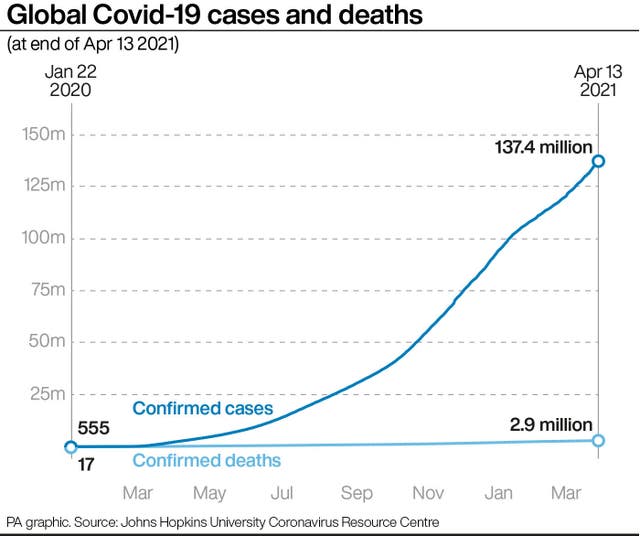
Nick Ferrari 7am - 10am
14 April 2021, 10:44

Maharashtra officials said most public places, shops and establishments will be shut starting at 8pm on Wednesday, except essential services.
The teeming metropolis of Mumbai and other parts of Maharashtra, the Indian state worst hit by the pandemic, face stricter restrictions for 15 days in an effort to stem the surge of coronavirus infections.
Top state officials stressed that the closure of most industries, businesses, public places and limits on the movement of people did not constitute a lockdown.
Last year, a sudden, harsh nationwide lockdown left millions jobless overnight.
Stranded in cities with no income or food, thousands of migrant workers walked on roads to get home.

Since then, state leaders have repeatedly stressed that another lockdown was not on the cards.
The distinction did little to allay Ramachal Yadav’s anxieties.
On Wednesday morning, he joined others at a Mumbai railway station getting on a train back home.
“There is no work,” said the 45-year-old.
India has detected more than 180,000 new infections in the past 24 hours, about a third in Maharashtra state.
The country has so far confirmed more than 13.9 million cases and 172,000 dead in what is likely to be an undercount.

Maharashtra chief minister Uddhav Thackeray said that most public places, shops and establishments will be shut starting at 8pm on Wednesday, except essential services such as grocery shops and banks.
Although the state has announced a relief package of 728 million dollars (£528 million) that will include assistance for the poor, industry experts say that the new restrictions might prove fatal for businesses that were only just recovering from last year’s economic recession.
“Livelihoods are important, but life is more important,” Mr Thackeray said, echoing a difficult choice faced by other states in India.
The scenes playing out in Maharashtra in the past week mirror those developing in other parts of the country – patients gasping for air turned away from hospitals that are running out of oxygen and weeping families waiting their turn to bid farewell to their loved ones at crematoria.
Compounding concerns is the question of whether India, despite being the world’s largest maker of vaccines, will have enough to immunise its vast population swiftly enough to slow down the virus.

India said on Tuesday that it would authorise vaccines that had been given an emergency nod by the World Health Organisation or regulators in the United States, Europe, Britain or Japan.
Indian regulators also approved Russia’s Sputnik V for emergency use.
But experts said that the decision was unlikely to have any immediate impact on supplies available in the country.
“All one can think of is that, I hope I don’t fall ill over the next month or so,” said Dr Vineeta Bal, who studies immune systems at the Indian Institute of Science Education and Research in Pune city in Maharashtra state.